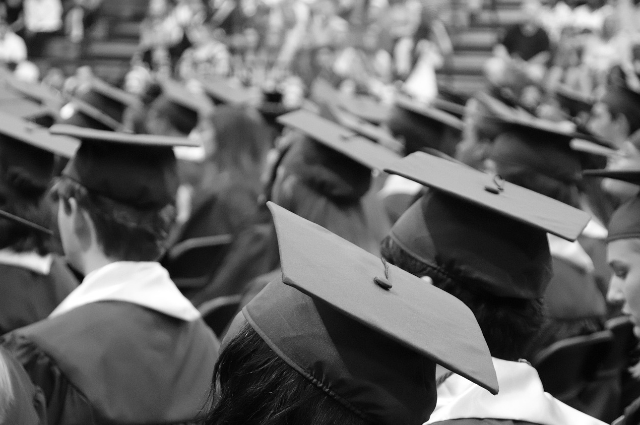
Introduction: The Curious Quiet
You would expect the most educated among us to be the loudest when something goes wrong. After all, they have the vocabulary, the exposure, and the platforms. Yet, more often than not, they fall silent — not just during violent upheavals or political turmoil, but even in moments of everyday injustice, social inequality, and moral decay. What happened to the thinking class of India? Where did their voices go?
In a country teeming with engineers, doctors, professors, bureaucrats, and MBAs, it is startling how few dare to speak when it matters most. The silence is not just surprising — it is deafening. And dangerous.
The Educated Indian: Privileged, But Passive.
Education was once a transformative force. It built leaders, reformers, writers, and visionaries. Today, it often builds careers, not character. Many of our most qualified citizens have slipped into a culture of quiet convenience. They pay their taxes, meet their deadlines, raise decent families, and stay away from “controversy.” When a school burns down because a girl asks too many questions, or when a Dalit boy is beaten for sitting too close to the upper castes, they scroll, sigh, and swipe past. “It’s terrible,” they say. And then, silence.
This is not ignorance. This is deliberate insulation. And it has become a national pattern.
Middle-Class Comfort and Its Moral Cost
Much of this silence comes from the urban middle class, which has grown used to comfort but is fearful of consequence. The better the job, the safer the silence. An outspoken teacher may lose her position. A questioning civil servant may find his file delayed. A public tweet can cost a promotion.
The result? Highly literate citizens who self-censor even in private conversations. They avoid political discussions at dinner. They discourage their children from asking “sensitive” questions. They advise: “Stay focused. Build your life. Don’t get into all this.”
All this — meaning the nation’s problems. But if those who understand the system choose not to speak, who will?
The New Age of Digital Cowardice
Some argue that the digital age has empowered the masses. Yes — but selectively. The educated Indian, armed with smartphones and fluent English, is often loudest on safe topics: cricket, cinema, recipes, and productivity hacks.
Yet the same people go quiet when a journalist is jailed without trial, or when a tribal village is razed in the name of “development.” They do not amplify, they do not protest, they do not dissent.
Their social media bios say, “Liberal. Thinker. Humanist.” Their timelines, however, are spotless — and spineless.
It is not that they lack opinions. It is that they fear being watched, being misread, or being labelled. So they choose safety over sincerity.
The Fear of Taking a Stand
Why don’t more educated Indians speak up? The answers are complex, but they boil down to fear, fatigue, and a flawed sense of pragmatism.
Fear of consequences, surveillance, or backlash.
Fatigue — from constant bad news and the belief that nothing changes.
Pragmatism — the mindset that says, “My voice won’t matter, so why risk it?”
But this isn’t pragmatism. It's a passive complicity. And slowly, it is eroding the very conscience that education was meant to build
When Learning Forgets Conscience
Here lies the heart of the crisis: a growing disconnection between education and engagement. Somewhere along the way, learning stopped being about developing a conscience and became entirely about building a résumé.
Schools rarely teach critical thinking anymore. Coaching institutes teach obedience, not opinion. Universities reward repetition, not reflection. And our workplaces prize compliance over conscience.
So we have a country full of top scorers who won’t speak when their neighbors are persecuted. Those who believe integrity is personal, not political. Those who confuse being “apolitical” with being ethical. But a good citizen is not someone who avoids wrong. It is someone who resists it.
The Price of Disengagement
Make no mistake — this silence comes at a cost. Every time a well-informed, educated person chooses silence over courage, the moral centre of society tilts a little more towards indifference. Democracy does not die when the poor riot. It dies when the educated look away.
This silence trickles down. It tells young people that questioning is dangerous. That ethics are optional. That intelligence is best used for personal gain, not the public good. More importantly, why should I go to vote - better enjoy the holiday
And that is a terrible lesson to pass on.
Because disengagement does not protect you. It only delays the decay. Today, you keep quiet to “stay safe.” Tomorrow, your safety will be someone else’s silence.
The Way Back: Education with Empathy
What we need is not just more degrees, but more decibels of truth, of courage, of conscience. We need public intellectuals, not silent spectators. We need to reimagine education not just as a tool for employment but as a trigger for empathy.
Let our schools teach how to think, not just what to think. Let our colleges reward dissent, not penalize it. Let our workplaces encourage ethical questioning, not quiet compliance.
Let every educated person ask — “If I know what’s wrong and still stay silent, what is my education worth?”
Conclusion: Speak Now — While It Still Matters
It is time to stop confusing silence with wisdom. Sometimes, silence is just cowardice dressed in civility.
India does not need more toppers. It needs more truth-tellers. Not angry mobs, not blind rebels — but reasoned, responsible voices that do not flinch from truth. If the educated do not speak now, when will they? Because if knowledge does not lead to courage, what good is it? And if the most qualified minds stay silent in times that demand a stand, then maybe the real crisis isn’t just outside — it’s within.
